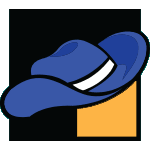
RSV, short for Respiratory Syncytial Virus, is one of the cold viruses seen every year with a season extending from about October through March. Children may have fever accompanied with runny nose, nasal congestion, and cough. Wheezing often develops with RSV, however; it is more common in children less than two years of age. There is no cure for the infection, but there are medications that may help with some of the symptoms. Unfortunately, the younger the child, the less effective and safe the medication may be. In babies, sometimes nasal saline and suctioning is the only effective treatment.
Babies less than 6 months of age are prone to wheezing and increased difficulty breathing. Despite the best efforts to help your baby, these complications cannot be prevented. If your baby develops increased difficulty breathing, hospitalization is not uncommon.
Babies at highest risk are less than 6 weeks of age. They are prone to apnea and often require hospitalization.
So do children really need to be tested for RSV? The American Academy of Pediatrics came out with recommendations for testing your child for RSV. They do not recommend routine testing for RSV in children older that 6 weeks of age. This is because the treatment for your child will not be any different if the test is positive or negative. In other words your doctor may insist on testing, but the treatment of symptoms will be the same regardless the result. Babies less than 6 weeks of age should be tested if they have significant symptoms because of their risk for apnea. However if the test is positive, these infants only need nasal saline with suctioning and close observation. If they develop poor feeding, difficulty breathing, or apnea, then your doctor should evaluate your baby.
At Little Spurs Pediatric Urgent Care we have experienced providers able to evaluate your child. If you are not able to get in to see your doctor, we are available to help you.
Written by: Thomas Spurgat, MD, MBA
Here are some other resources about RSV:



